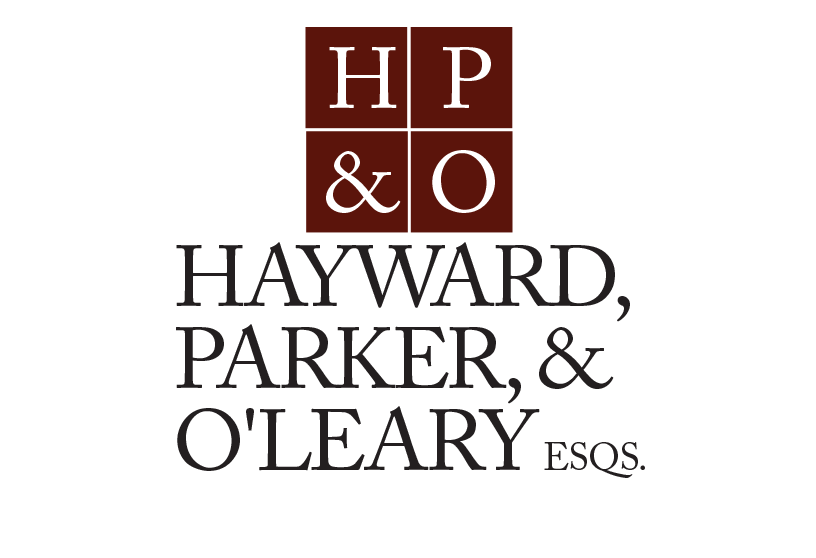Middletown Attorneys Stop the Foreclosure Process for Homeowners in New York
Defending family homes from foreclosure — one client at a time
Often, potential clients from Middletown, Newburgh, White Plains, Orange County, and throughout New York come to us at Hayward, Parker & O’Leary Esqs. after receiving a pre-foreclosure notice or a foreclosure summons and complaint. The first item they ask is usually, “Is there any way I can stop this foreclosure?” While every situation and foreclosure timeline differs, New York and federal law provide means for a foreclosure defense attorney to stall, stop, or fix your foreclosure. Additionally, even if you are unable to halt the foreclosure process initially, the process can be extremely lengthy, often taking well over a year.
What is the process required for New York foreclosure?
The process for foreclosure in New York is very technical, requiring numerous notices, disclosures, conferences and other procedures. While New York law does not require it, many people have mortgage agreements mandating that a notice be sent within 30 days of a missed payment. If your mortgage did not require this disclosure, the first you hear about the foreclosure is in a pre-foreclosure notice sent at least 90 days prior to proceedings. 90 days later, the lender can file a summons and complaint and deliver it to the homeowner. Depending how the complaint was delivered, the homeowner then has either 20 or 30 days to answer.
A mandatory foreclosure settlement conference is then scheduled. At the conference, the homeowner meets with the lender and attempts to amicably resolve the matter, such as through a mortgage modification. These conferences are often postponed and rescheduled, but the homeowner should always participate, because they may be able to stop their foreclosure, and also because even if no deal is reached, the settlement process effectively puts a stop to the foreclosure until the conferences are concluded.
If the settlement process does not produce an amicable result, the lender typically asks the court for summary judgment in their favor. In the past, lenders were often usually granted this. However, after improprieties and general sloppiness of document handling under the Mortgage Electronic Registration System (MERS) came to light, some homeowners have defeated the motion. If summary judgment is granted or no answer was filed, an order of reference is signed and filed. The referee then computes the amount due and reports this information to the Court. A Judgment of Foreclosure and Sale is then issued, which gives the lender the right to sell the property at auction. A Notice of Sale is then published, followed by an auction sale. When the referee concludes the sale to the highest bidder and delivers a referee’s deed, title to the property is deemed transferred and the former homeowner can be evicted if they remain in the premises. It is the cumbersome nature of this process that gives rise to the many stories heard about people remaining in their house for a year or more after the foreclosure has commenced.
How can I stop foreclosure in NY?
In Middletown, Newburgh, Orange County and throughout New York there are numerous ways to stop or stall foreclosure. Some of the means to avoid foreclosure are provided by state or federal law, while others are caused by mistakes. They include:
- The automatic stay — the automatic stay is available in all forms of bankruptcy and temporarily puts a halt to lenders’ collection attempts.
- Chapter 13 bankruptcy — Chapter 13 bankruptcy is a means to permanently keep your home. Under a Chapter 13 plan, you agree to pay back all of your past-due mortgage payments in exchange for keeping your property.
- MERS mistakes —Given the revelation of lender’s sloppy document handling and “robo-signings”, etc., state courts hearing foreclosures have increased the standard for lenders to show that they have standing, or the ability, to bring a mortgage foreclosure. This is a fairly new area that homeowners and their attorneys can explore. Simply put, if the lender does not possess (or have rights in) the underlying promissory note, they cannot foreclose.
- Mortgage modification — At the settlement conferences, many lenders offer concessions and other modifications to try to avoid foreclosure and its associated costs. If you stop your foreclosure by agreeing to a modification, you must be able to make payments or risk ending back up in the foreclosure process.
- Mandatory foreclosure settlement conferences — These conferences are often canceled and rescheduled multiple times. Until the settlement process is exhausted, the foreclosure cannot proceed. Therefore, homeowners wishing to delay foreclosure should always attend these conferences.
Put our experience to work for you by letting us stop your foreclosure
A foreclosure notice does not mean you have to lose your home. In New York, the foreclosure process is lengthy and offers numerous opportunities to delay it or avoid foreclosure entirely. Protect your home by calling us, Hayward, Parker & O’Leary Esqs., at 845-343-6227 or contacting us online for your free consultation.
